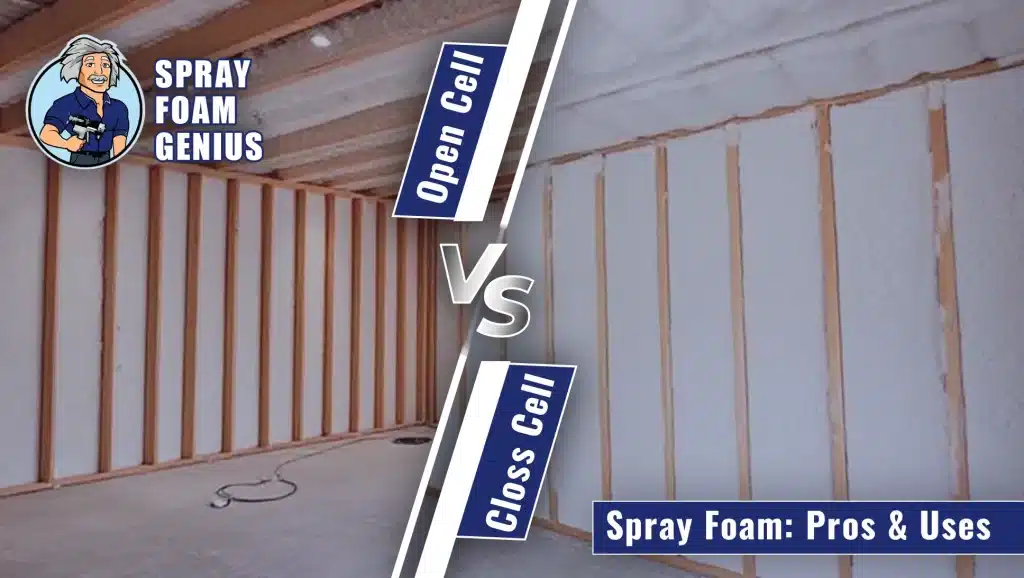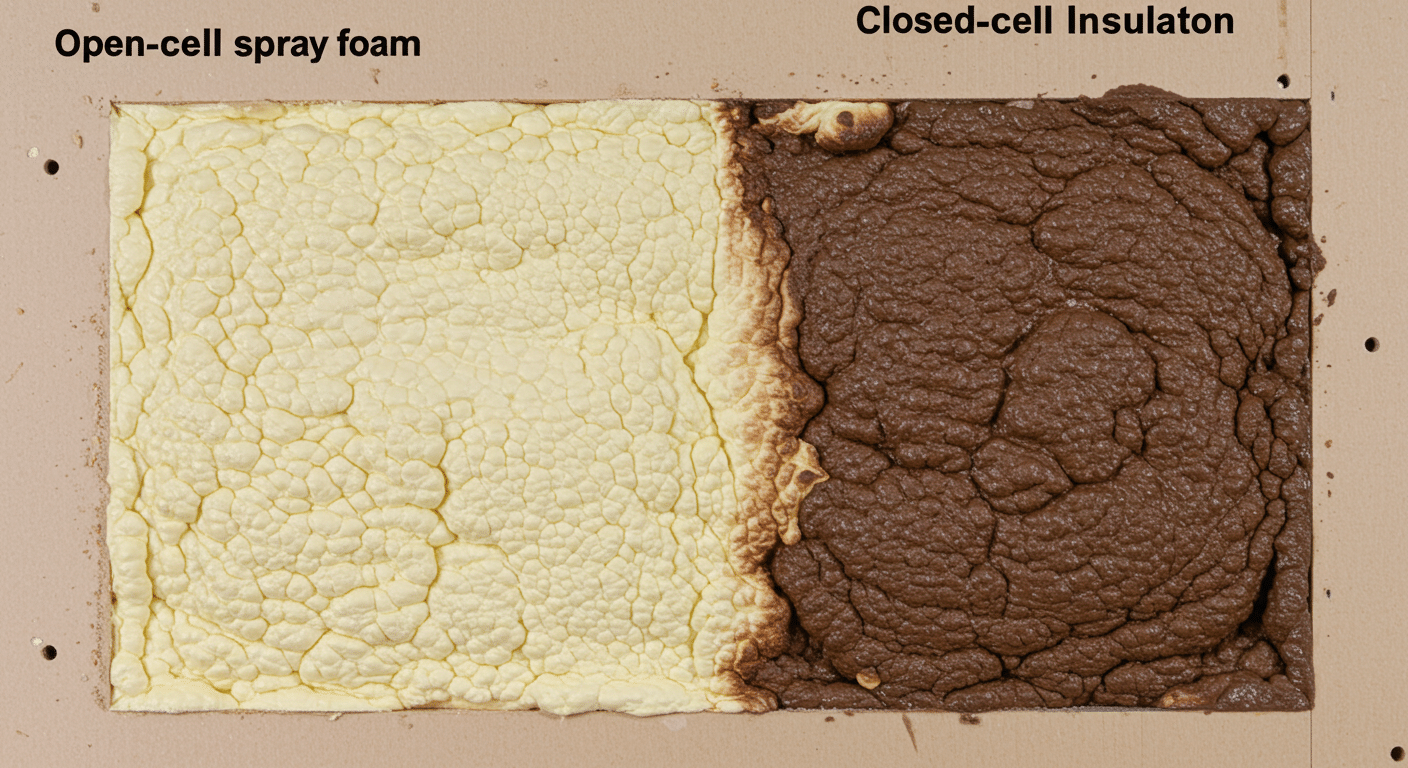
Open cell and closed cell spray foam are both popular insulation options, but they differ in their properties and best use cases. Open cell foam is softer, more flexible, and absorbs moisture, making it ideal for soundproofing and interior insulation. Closed cell foam is denser, more rigid, and moisture-resistant, offering superior insulation and strength for external applications like roofs and foundations.
Key Factors Affecting Open Cell vs Closed Cell Spray Foam
| Factor | Open Cell Foam | Closed Cell Foam |
| Density | Lower density, softer | Higher density, rigid |
| Moisture Resistance | Absorbs moisture | Highly moisture-resistant |
| R-Value (Insulation) | Lower R-value per inch | Higher R-value per inch |
| Cost | Less expensive | More expensive |
| Best Use Case | Interior insulation, soundproofing | Exterior insulation, structural support |
Open Cell vs Closed Cell Foam: Pros and Cons
| Type | Pros | Cons |
| Open Cell Foam | – Good soundproofing qualities- Lower cost- Flexible; expands well to fill gaps | – Absorbs moisture; not ideal for damp areas- Lower R-value than closed cell |
| Closed Cell Foam | – High R-value; excellent insulation- Moisture-resistant; great for exterior use- Adds structural strength | – Higher cost- Less effective at soundproofing |
Focused Supporting Details

Applications of Open Cell Foam
Open cell foam is ideal for interior spaces where moisture is not a concern. It’s commonly used in attics, walls, and ceilings, providing excellent soundproofing due to its porous nature. Its affordability makes it a popular choice for residential projects. However, it should be avoided in areas with high humidity, such as basements or crawl spaces, where moisture absorption could lead to mold growth.
Benefits of Closed Cell Foam
Closed cell foam’s dense structure offers superior thermal resistance and moisture protection, making it perfect for use in exterior applications, including roofing, foundations, and basements. It helps prevent water infiltration, adding durability and strength to buildings. Its higher R-value per inch makes it more energy-efficient, though its cost is a factor to consider for larger projects.
Spencer is a Google ranking expert and SEO consultant who has helped businesses in the spray foam marketing industry achieve their online marketing goals. Spray Foam Genius Marketing has a proven track record of success, having achieved some impressive results for his clients.

